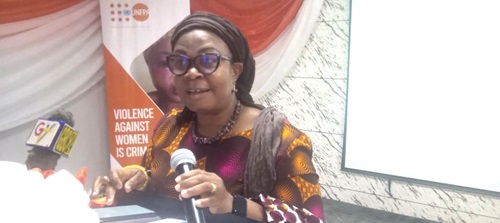
UNFPA launches baseline survey report on FGM
The United Nations Population Fund (UNFPA) has launched a baseline survey report on the prevalence of Female Genital Mutilation (FGM) in three northern regions.
The report was the outcome of a study commissioned by the UNFPA dubbed: “The state of female Genital Mutilation/Cutting (FGM/C) in Northern Ghana”.
Specifically, it was conducted in the Upper East, Upper West and Savanna regions respectively with the targeted districts being Kassena Nankana West, Pusiga, Wa East and Sawla-Tuna-Kalba.
Census results
In a speech read on his behalf at the official launch of the report last Tuesday, November 21, 2023, the UNFPA Ghana Country Representative, Dr Wilfred Ochan, said the results of the 2021 population and housing census indicated that the practice of FGM among women between 15-49 was 2.4 per cent with high rates in the Upper West and Upper East regions.
He stated that results indicated FGM continued to prevail despite laws banning it in Ghana since 1994, saying “the finding suggested there were multiple factors influencing the practice including controlling female sexuality, marriageability and tradition”.
“Other reasons were prevention of death of females and infants, religious beliefs that the clitoris carried dirt, to gain societal respect and pressure from the society, among others,” he stated.
Violates rights
He said FGM violated the rights of the women and girls and limited their opportunities for the future in health, education and income, saying “it is an act of gender-based violence that harms girls’ bodies, dims their future and endangers their lives”.
He stated with eight years left to reach the global target of eliminating FGM in 2030, only collective and well-focused actions across a diverse group of stakeholders could end the harmful practice.
He added that changing gender and social norms that encouraged FGM were critical and that men and boys were powerful allies in the effort towards ending the act in the country and further quizzed “can you imagine if men came together and vowed never to marry circumcised women?”
“This survey has provided new information on the state of FGM and that it is imperative that innovative approaches are needed to address the practice which remains a huge human rights issue for everyone,” he said.
Culture
In a welcome address, the Chief Director of the Upper East Regional Coordinating Council, Alhaji Abubakari Inusah, said the preservation of culture was good but harmful traditional practices that have health and psycho-social effects on females such as FGM should be nipped in the bud.
While calling for the intensification of efforts by stakeholders through a coordinated approach to achieve the intended goal, he said RCC’s doors were opened for any form of engagement towards ending the harmful practice in the region and the nation at large.
Writer’s email:
